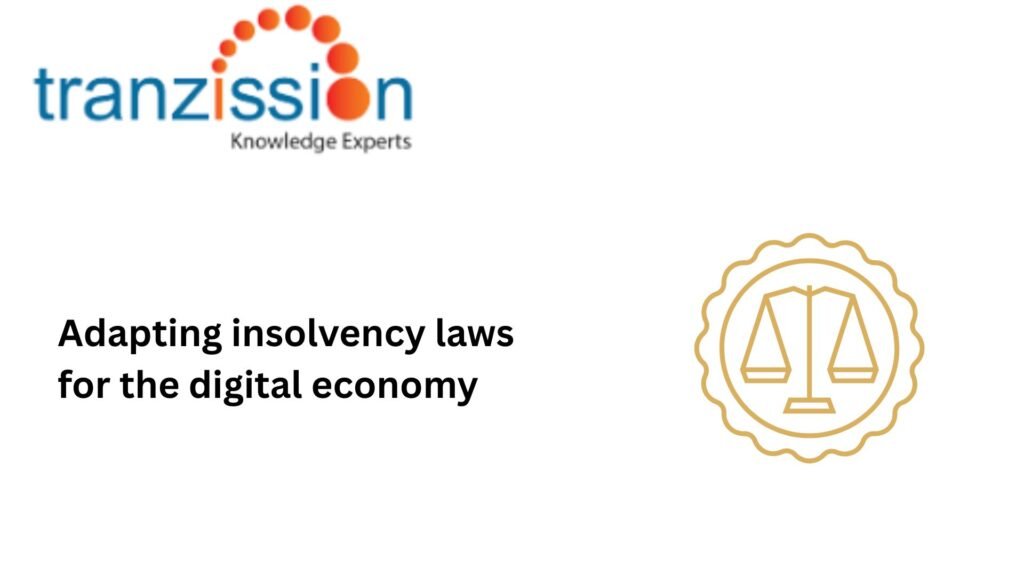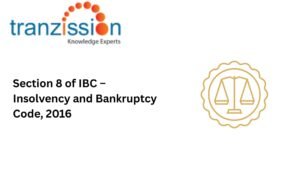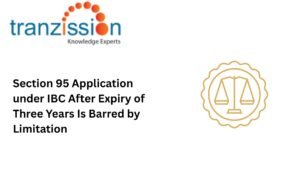
Adapting insolvency laws for the digital economy

Table of Contents
The Insolvency and Bankruptcy Code, 2016 (IBC) aims to consolidate and streamline insolvency proceedings, creating a unified framework for resolving corporate insolvency. While the IBC is a comprehensive law, it has also been acknowledged to have limitations, and ongoing efforts are being made to improve its efficiency and effectiveness, particularly in the context of the insolvency laws for the digital economy
Key Characteristics of the insolvency laws for the digital economy
The implementation of insolvency laws for the digital economy process is due to certain features, such as:
Intangible Assets at the Core:
Insolvency professionals and other experts face difficulty in the valuation, protection, and transfer of such assets during insolvency. In these steps, intellectual property is dominant (IP), data, software, and platform value over physical inventory.
Borderless Business Models:
Digital businesses often operate across jurisdictions with no physical footprint. This is particularly beneficial in cross-border insolvency matters and when conflict of law issues emerge.
Reliance on Technology Infrastructure:
Insolvency may disrupt ongoing services or cause loss of critical digital access. The dependence on cloud services, third-party data hosts, and digital payment gateways can overcome such operations.
Challenges for Insolvency Laws
The challenges in adopting technological methods in insolvency and bankruptcy proceedings are:
- There are difficulties in recognizing and valuing IP, customer databases, digital tokens, and domain names. To move forward and resolve this issue, it is necessary to have skilled valuers and updated asset valuation methodologies.
- Insolvency of businesses with global digital presence raises questions of which country’s laws apply, and there are complications in enforcing moratoriums and judgments internationally.
- The rise of DAOs (Decentralized Autonomous Organizations), smart contracts, and blockchain platforms complicates traditional enforcement.
Evolving Legal Frameworks – Global Developments
Progressive Approaches:
The United Kingdom (UK) has included a restructuring plan under the Corporate Insolvency and Governance Act, 2020, that has modern tools for digital-heavy businesses. On a global scale, the UNCITRAL Model Law on Cross-Border Insolvency has principles and features that are relevant for digital firms.
Jurisdictional Examples:
Jurisdiction is one of the main legal challenges in cross-border insolvency cases, particularly in India. The best example of an insolvency framework that successfully addresses this issue is Singapore. Singapore’s reforms cover digital payment token service providers under their insolvency regulations. In addition to this, the European Union (EU), Digital Operational Resilience Act (DORA, is a comprehensive regulation aimed at enhancing the digital resilience of the financial sector by establishing a uniform framework for managing ICT risks, incident reporting, and third-party service provider relationships.
India’s Position and Emerging Needs
Indian laws have no specific reference to digital assets, crypto, or cloud-based IP in IBC. This leads to procedural rigidity and asset tracing issues in digital contexts.
Therefore, the regulatory body in the insolvency framework, the Insolvency and Bankruptcy Board of India (IBBI), needs to establish guidelines for the treatment of digital assets in insolvency or liquidation. It could also implement legal reforms on the valuation of non-traditional assets and data protection, continuity of digital services, and transition protocols to successfully incorporate digital tools in insolvency laws.
Recommendations and the Way Forward
The Insolvency and Bankruptcy Board of India (IBBI), insolvency professionals, and other regulatory bodies and stakeholders are recommended to:
- Implement amendments to define and categorize digital assets under the IBC.
- Introduce certain regulatory sandbox models for insolvency involving tech startups or fintech entities.
- Establish training programmes for insolvency professionals, valuers, and adjudicators on digital economy concepts and encourage collaboration between IBBI, SEBI, RBI, and tech regulators.
- Implement bilateral treaties or adopt the principles of the UNCITRAL Model Law to handle insolvencies involving tech companies with a global presence.
Conclusion
Here mention about insolvency laws for the digital economy that are adaptive, tech-savvy, and internationally harmonized, and proactive reforms can ensure effective resolution of insolvency while preserving value in digital assets and protecting stakeholder interests.
Read more :





